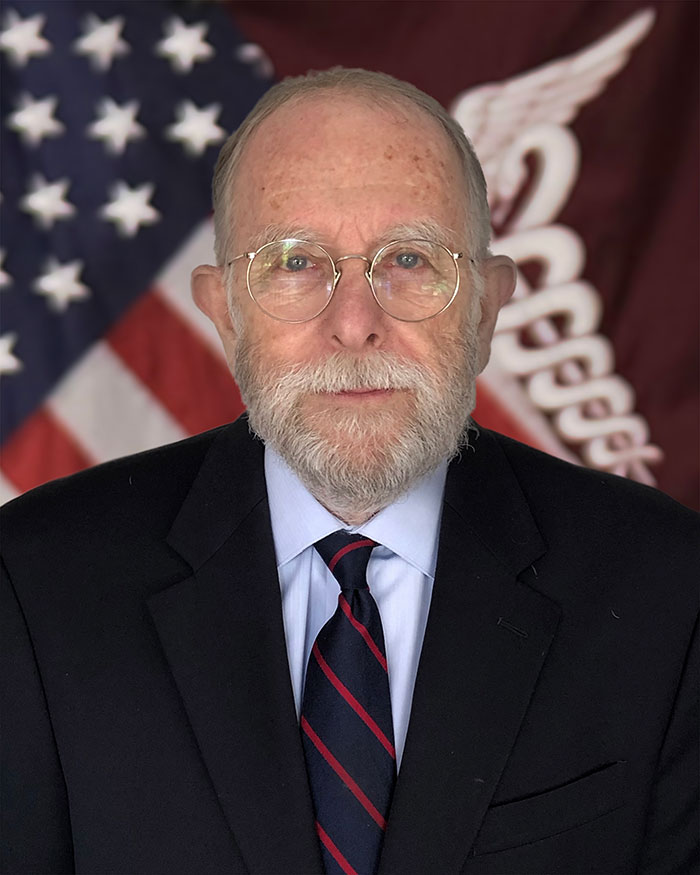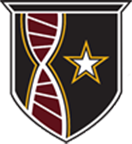USAMRIID Scientist Arthur M. Friedlander Elected to American Academy of Microbiology

Arthur M. Friedlander, M.D., senior scientist at the U.S. Army Medical Research Institute of Infectious Diseases, has been elected Fellow of the American Academy of Microbiology. He is one of 65 members to be recognized in 2023.
Members of this prestigious leadership group and "think tank" are elected annually through a highly selective peer-review process, according to a news release from the American Society for Microbiology. Selection is based on records of scientific achievement and original contributions that have advanced the field of microbiology.
Friedlander's research interests are in the pathogenesis of infectious diseases and in vaccine development. His work led to the identification of the macrophage as the target for anthrax lethal toxin (a key component of the bacterium that causes the disease) and to the current understanding of how anthrax toxins interact with eucaryotic cells. He directed USAMRIID studies resulting in next-generation vaccines for anthrax and plague that are currently in human trials. In addition, Friedlander and his team were the first to demonstrate the value of postexposure antibiotic prophylaxis for anthrax, which provided the evidence for the current treatment recommendations in human patients.
A native of Brooklyn, New York, Friedlander received his medical degree from the University of Pittsburgh after graduating from Harvard College. Following completion of his medical training and a postdoctoral fellowship at the National Institutes of Health, he was an NIH Postdoctoral Research Fellow in Infectious Diseases at the University of California School of Medicine in San Diego. He began his USAMRIID career as an Army officer, serving as Chief of the Airborne Diseases Division, Chief of the Department of Pathobiology, and Chief of the Bacteriology Division before retiring from active duty in 2002. He has remained with the Institute in a civilian capacity since then.
"We congratulate Dr. Friedlander on his selection to the Academy, and on his distinguished career in science both as a military service member and a civilian," said Col. Constance L. Jenkins, USAMRIID Commander. "Having a researcher of his caliber at USAMRIID speaks to the great opportunities available here at the Institute and elsewhere in the Department of Defense."
Friedlander is an Adjunct Professor of Medicine at the Uniformed Services University of the Health Sciences School of Medicine. He is also a Fellow of the Infectious Diseases Society of America and a recipient of the Army Research and Development Achievement Award and the Jay P. Sanford Award in Infectious Diseases. Friedlander is the most highly cited author in Bioterrorism Research for the period 1999-2008 and has published over 150 scientific publications. He was a 2012 Finalist for the Samuel J. Heyman Service to America Medal.
About the U.S. Army Medical Research Institute of Infectious Diseases:
Since 1969, USAMRIID has provided leading edge medical capabilities to deter and defend against current and emerging biological threat agents. The Institute is the only laboratory in the Department of Defense equipped to safely study highly hazardous viruses requiring maximum containment at Biosafety Level 4. Research conducted at USAMRIID leads to vaccines, drugs, diagnostics, and training programs that protect both Warfighters and civilians. The Institute's unique science and technology base serves not only to address current threats to our Armed Forces but is an essential element in the medical response to any future biological threats that may confront our nation. For more information, visit www.usamriid.army.mil.
About the American Society for Microbiology
ASM is one of the largest professional societies dedicated to the life sciences and is composed of 30,000 scientists and health practitioners. ASM's mission is to promote and advance the microbial sciences through conferences, publications, certifications, and educational opportunities. There are over 2,600 Fellows in the Academy representing all subspecialties of the microbial sciences and involved in basic and applied research, teaching, public health, industry, and government service. The Class of 2023 represents fellows from 11 different countries, including Argentina, Australia, Canada, China (Mainland), France, Germany, India, Israel, Singapore, the United Kingdom, and the United States.
 An official website of the United States government
An official website of the United States government
 ) or https:// means you've safely connected to the .mil website. Share sensitive information only on official, secure websites.
) or https:// means you've safely connected to the .mil website. Share sensitive information only on official, secure websites.
